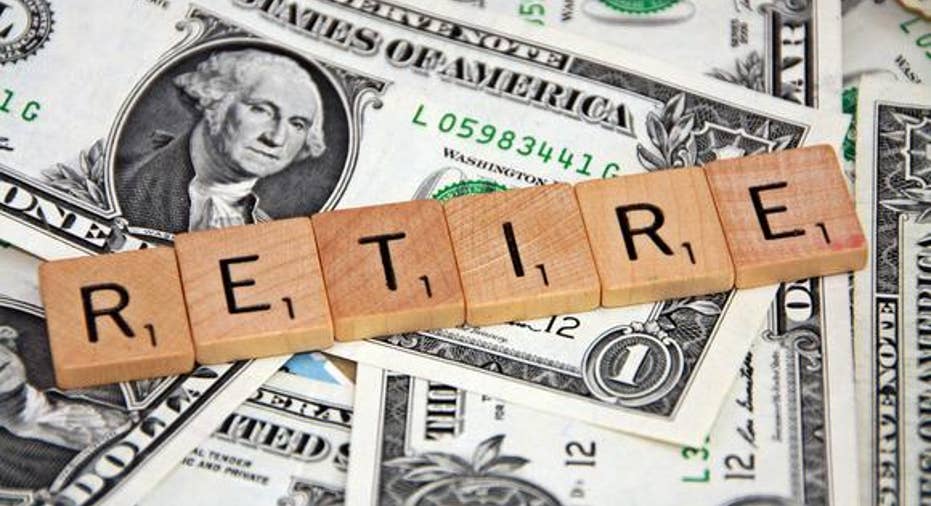Can I Invest in a 401(k) Without an Employer?

Photo: 401kcalculator.org via Flickr.
A 401(k) is the most common type of retirement plan private-sector employers offer. However, many employers don't offer a 401(k), or any type of retirement plan at all. If you are in this group, can you still take advantage of the many benefits of a 401(k)?
The short answer: not really By definition, a 401(k) is an employer-sponsored retirement plan designed to encourage employees to save money for retirement and employers to help them do it. So to take advantage of this type of an account, you need to have an employer, and the employer needs to be the sponsor of the plan.
Some specific rules:
- You can't invest in a 401(k) if you're unemployed.
- You can't invest in a 401(k) if your employer doesn't offer one, or you don't meet the qualifications for your employer's plan (such as working for a certain length of time).
- You can't invest in an employer's 401(k) if you aren't that employer's employee.
But just as with many other topics in finance, there are exceptions. Here are two major exceptions to the 401(k) rules.
Exception 1: You are the employerIf your income comes from self-employment, you can start a retirement savings account known as a Solo 401(k) or Individual 401(k).
Essentially, this gives you all the benefits of an employer-sponsored 401(k), as well as the ability to invest in any stocks, bonds, or mutual funds you want -- not just in a small, specific basket of funds such as those that most employer-sponsored 401(k) plans offer.
If you qualify, a Solo 401(k) can be a great choice for your retirement savings. The contribution limits are high -- since you're both the employer and the employee, you can contribute for both. For the 2015 tax year, you can contribute up to $18,000 as an employee ($24,000 if you're over 50) and another 25% of your income as an employer.
You have until April 15 of the following calendar year to make your contributions. For example, contributions for the 2015 tax year can be made until April 15, 2016. Additionally, 401(k) assets are better protected from litigation than other forms of retirement accounts such as IRAs.
It's also important to note that you can qualify for a Solo 401(k) even if self-employment isn't your only source of income. For example, if you have a job with an employer but also own a business on the side, you can still qualify. If you want to learn more about Solo 401(k) accounts and who qualifies for one, check out this article.
Exception 2: 401(k) with former employerThe other exception is if you don't have a 401(k)-offering employer, but you used to. When you change jobs, your old employer will generally allow you to leave your retirement assets in its 401(k) plan. Depending on the company, there's usually a minimum balance requirement -- many don't allow former employees to leave accounts with under $5,000 in assets if they're no longer employed with the company.
If you choose to leave your 401(k) with a former employer, you do lose some benefits, such as the ability to make new contributions. However, many 401(k) plans offer low-cost investment funds that are unavailable to the general public, so if you have an old 401(k), it may be a good idea to leave it where it is.
The best alternativeIf you can't invest in a 401(k), an IRA is a pretty good alternative. You'll get a lot of the same benefits, such as the tax advantages, but with lower contribution limits. (You can invest only $5,500 for 2015 in an IRA -- or $6,500 if you're over 50). IRAs come in two main varieties -- traditional and Roth -- and they're both worth looking into if you need a good retirement savings option.
This article is part of The Motley Fool's Knowledge Center, which was created based on the collected wisdom of a fantastic community of investors based in theFoolsaurus. Pop on over there to learn more about our Wiki andhow you can be involvedin helping the world invest, better! If you see any issues with this page, please email us atknowledgecenter@fool.com. Thanks -- and Fool on!
The article Can I Invest in a 401(k) Without an Employer? originally appeared on Fool.com.
Try any of our Foolish newsletter services free for 30 days. We Fools may not all hold the same opinions, but we all believe that considering a diverse range of insights makes us better investors. The Motley Fool has a disclosure policy.
Copyright 1995 - 2015 The Motley Fool, LLC. All rights reserved. The Motley Fool has a disclosure policy.



















